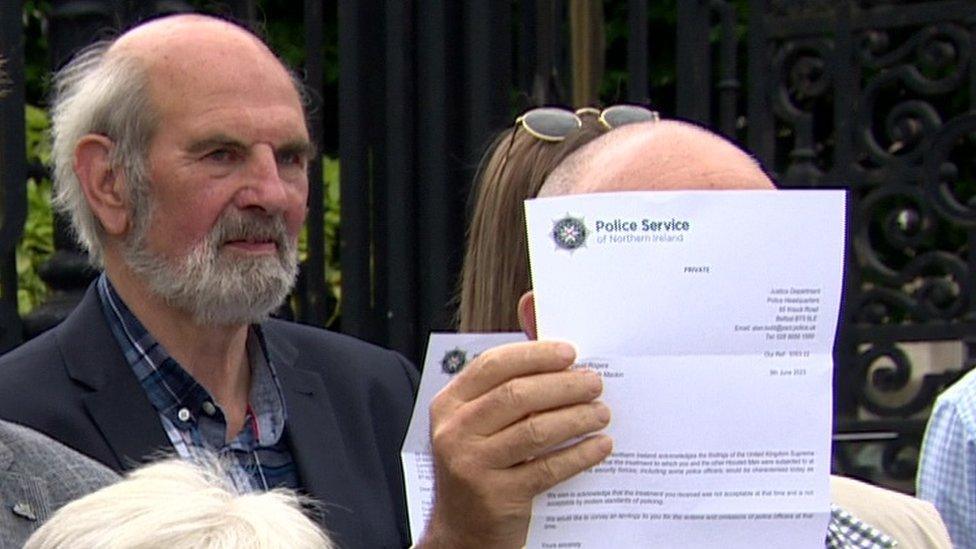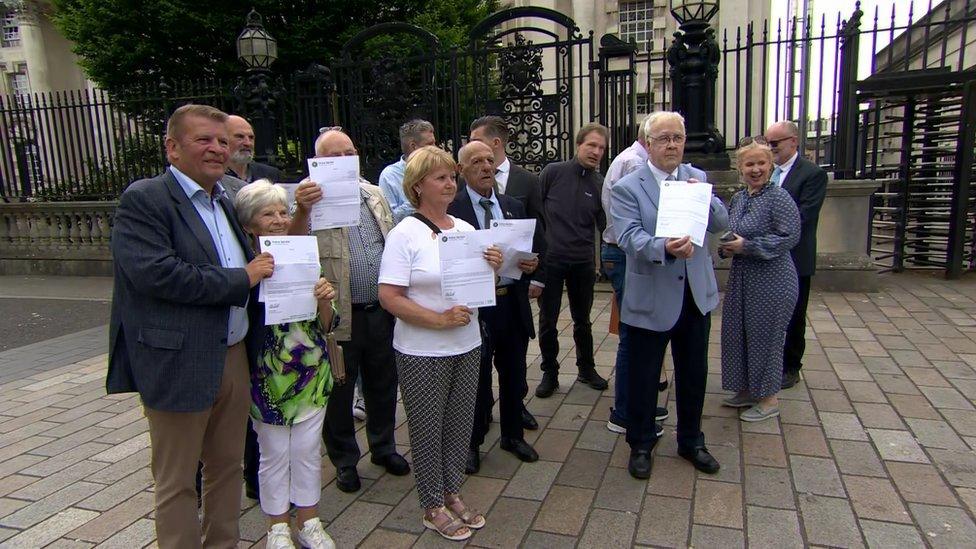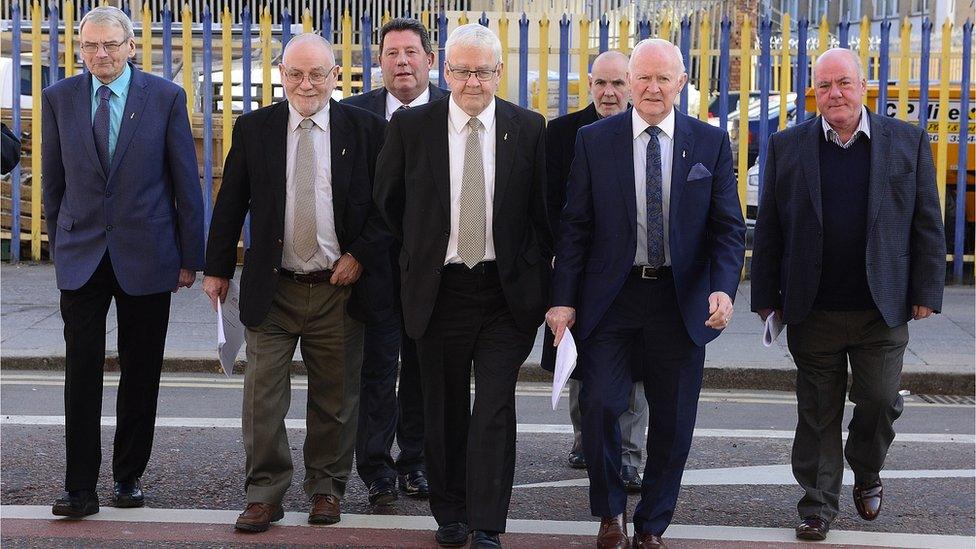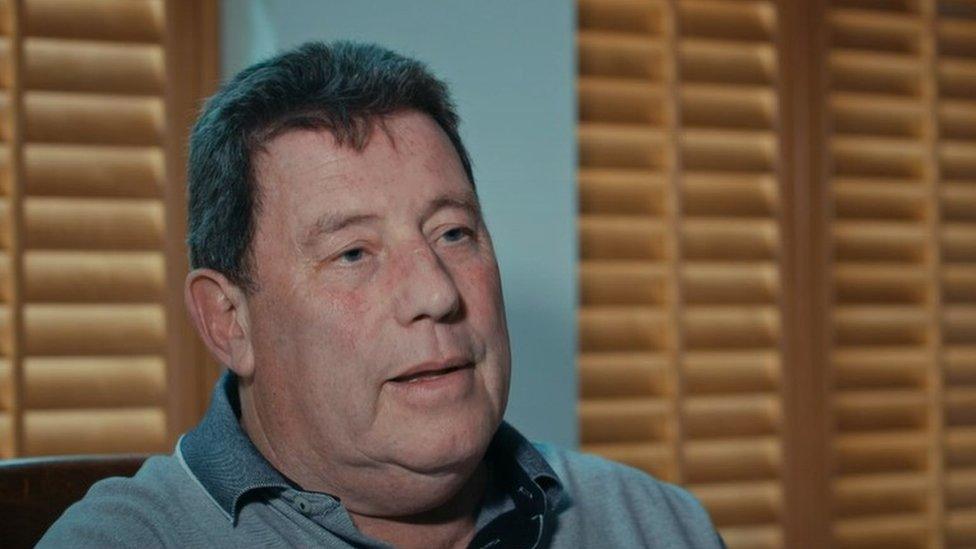Hooded Men: Michael Donnelly says he does not accept PSNI apology
- Published

Michael Donnelly, pictured in Belfast on Tuesday, said the police apology was 50 years too late
One of the "Hooded Men", Michael Donnelly, has said he does not accept a police apology over his treatment.
Mr Donnelly was one of 14 men arrested in 1971 during internment without trial and questioned by the police and Army.
Two years ago the Supreme Court ruled that the techniques they were subjected to would be characterised as torture by today's standards.
The Police Service of Northern Ireland (PSNI) made a formal apology to the surviving Hooded Men on Tuesday.
The public apology came a day after the death of one of the men, Joe Clarke, at the age of 71.
The apology had been hand delivered to Mr Clarke by his solicitor on Thursday, four days before he died.
Mr Donnelly, who is from Londonderry, told BBC Radio Foyle's The North West Today programme that the apology is "50 years too late" for him and he said that it personally feels "fairly meaningless".
"I do not accept it - not at all," Mr Donnelly said.
Apology for action of officers
During their detention, the Hooded Men said they were forced to listen to constant loud static noise; deprived of sleep, food and water; forced to stand in stress positions; and beaten if they fell.
The men also said they were hooded and thrown from helicopters a short distance off the ground, having been told they were hundreds of feet in the air.
PSNI Det Ch Supt Ian Saunders said the police had issued the apology for the "actions and omissions of police officers involved in their treatment whilst in police custody in 1971".
"The police service recognises the significant step taken today in issuing this apology," he said.
"It is our view this was the right thing to do to help give the Hooded Men and their families recognition about how they were treated," he added.

Some of the Hooded Men and families gathered after the announcement was made
Mr Donnelly described the ordeal of being placed into a helicopter with his hands tied behind his back and being told that he was going to be pushed out from a great height over a body of water.
He also described at one stage thinking he was going to die during his detention after being severely beaten by his captors.
"I was trying to survive literally by the second, you could barely breathe at times when you were wearing the hood," he said.
"Sometimes I thought I was going to survive and then other times I thought I was going to die."
Mr Donnelly said he does not see why he should forgive anyone for his treatment.
'Characterised as torture'
The Hooded Men case has been the subject of multiple legal actions in the UK and Europe for decades.
In 1976, the European Commission of Human Rights ruled that the five techniques used on the men amounted to torture.
This ruling was later referred to by the European Court of Human Rights in 1978, which held that the UK had carried out inhuman and degrading treatment, but fell short of defining it as torture.
In 2019, Lord Chief Justice Sir Declan Morgan, Northern Ireland's most senior judge, said their treatment "would, if it occurred today, properly be characterised as torture".
In 2021, the Supreme Court issued their ruling that the men's treatment would be characterised as torture by today's standards.
On Tuesday, a spokesperson for the UK government said it acknowledged "the pain and suffering felt by so many during the Troubles".
"There are several ongoing legal proceedings in relation to this incident, and therefore it would be inappropriate to comment further at this stage," the spokesperson said.
- Published15 December 2021

- Published13 June 2023

- Published13 June 2023
